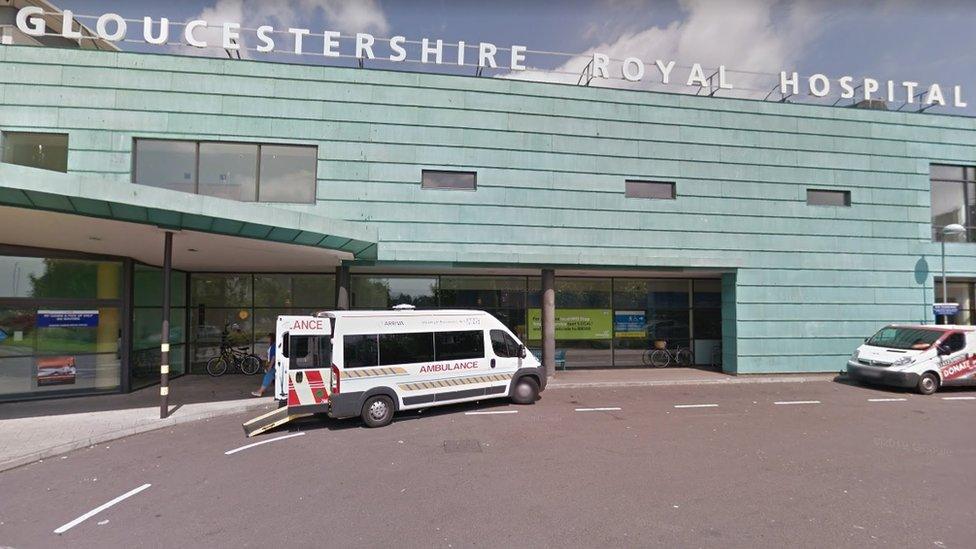Baby Freddie 'might have lived' without c-section delays
- Published

Baby Freddie died after his mother was forced to wait for an emergency caesarean
A baby whose mother was third in the queue for an emergency caesarean might have lived had he been delivered sooner, an inquest has heard.
Jay Whewell's son Freddie died five days after he was delivered on 24 May 2020 at Gloucester Royal Hospital.
His skull was fractured in delivery and his brain was starved of oxygen.
"If we had got Mrs Whewell into theatre 20 minutes earlier, we might not be in the situation we are now in," a consultant obstetrician told the court.
Freddie was transferred to Bristol's Neonatal Intensive Care Unit but later died.
The inquest at Gloucestershire Coroner's Court heard the maternity unit in Gloucester had just one theatre available at the time, and it was very difficult for a second to be opened at weekends.
Mrs Whewell was deemed the least urgent of three mothers all requiring urgent medical intervention during labour.
Consultant obstetrician Maggie Arlidge said: "Freddie only had a suspicion of an abnormal cardiotocography (foetal heartbeat) as he had not entered the birthing canal, but there is no doubt in my mind that Mrs Whewell needed to go into theatre."
'Wish I hadn't'
She said most cases of that nature did not have fatal outcomes.
Dr Arlidge continued: "In an ideal scenario we would always have a theatre team available."
Mrs Whewell was transferred to Gloucestershire Royal Hospital from a birthing unit in Cheltenham after she developed problems in labour.
The inquest heard that before going into theatre, she was given a small dose of oxytocin which can increase the strength of contractions.
In some cases, more powerful contractions can restrict the baby's blood and oxygen flow.
Dr Arlidge said: "I administered a small dose of oxytocin, which seemed to have an adverse effect on baby Freddie.
"With hindsight I wish I hadn't offered the drug, but it was administered because of the circumstances we found ourselves in."
Dr Andrew Bamber, a consultant paediatrician based at the North Bristol NHS Trust who carried out a post-mortem examination, concluded the cause of death was traumatic and hypoxic injury to the brain.
His injuries were consistent with a difficult delivery by the impaction of the skull and the pelvis requiring manual manipulation of the head, Dr Bamber said.
He said an additional cause of death was the impact of oxygen deprivation on Freddie's other organs during delivery.
Dr Bamber also found a tiny hole in Freddie's heart and issues with his kidneys and bladder.
The inquest is due to conclude on Friday.